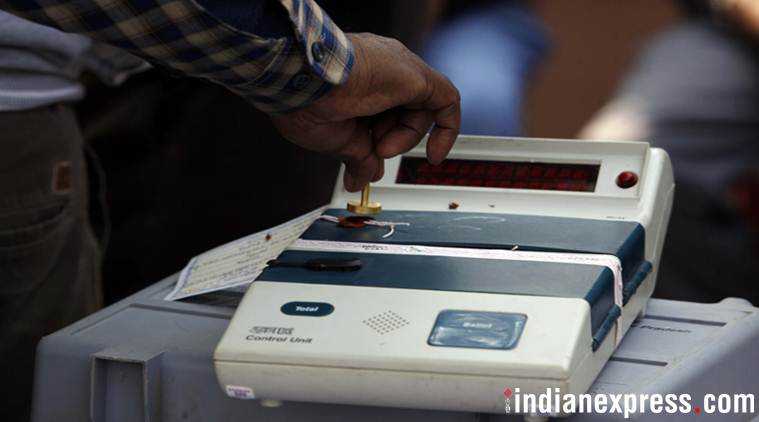 The idea of simultaneous elections first was brought up in the annual report of the Election Commission in 1983. (Express Photo by Vishal Srivastav)
The idea of simultaneous elections first was brought up in the annual report of the Election Commission in 1983. (Express Photo by Vishal Srivastav)
THE Law Commission is expected to recommend in favour of Prime Minister Narendra Modi’s proposal for “one nation, one election”.
Indications are that the recommendation will be part of the final report which will be submitted to the government by the commission before its term ends on August 31.
Sources have confirmed to The Indian Express that the Law Commission has gone through most of the responses and heard from various political parties on the proposal. Implementing it will require a substantive number of Constitutional amendments, they said, following which all the state assembly and general elections could be held in two phases.
Sources said that the commission has studied the model being followed in Germany which includes a positive vote of no confidence so that a new government is automatically sworn in when a government is voted out.
It will also include amendments to the anti-defection law, besides changing some other laws pertaining to parliamentary procedure and Representation of the People Act. The list of these constitutional amendments will be mentioned in the final report, sources said.
The Commission is expected to internally float a draft of the report and give at least 10 days for all members to respond and agree on the final form.
Yesterday, BJP president Amit Shah wrote to Law Commission chairman Justice B S Chouhan supporting simultaneous Lok Sabha and Assembly polls. He said that it had been successfully tested and tried in the past and was an idea that could be implemented. Calling objections to the proposal “politically motivated,” Shah claimed that simultaneous polls would “strengthen the federal structure.”
In fact, some BJP leaders have suggested that by advancing some state Assemblies and securing early dissolution of some, as many as a dozen state polls can, hypothetically, be held along with Lok Sabha polls in 2019.
But Opposition parties have been largely opposed to the idea. The Congress met the Law Commission on August 3 and spoke of the infeasibility of simultaneous polls. They called for the Law Commission to “drop the proposal immediately.”
The CPI(M), in its submission, called the proposal inherently “anti-democratic” for insisting on five-year terms for governments. The parties that backed the proposals were regional parties in Andhra Pradesh and Odisha, which for the past few terms, coincidentally have had state elections along with general elections.
The arguments against one election, sources said, such as those impinging on federalism and decimating local issues, would reduce elections to a referendum or snap poll.
Costs would not necessarily come down as many more machines — and more extensive logistics — would be needed at one go. Former Chief Justice M N Venkatachalaiah, who headed the Constitution Review Commission in the previous NDA regime said, “In a Parliamentary democracy like ours, things like a referendum or a snap poll do not work. They could (work) in some countries but are unsuitable for our democratic culture.”
Simultaneous elections were the norm until 1967 but following dissolution of some Assemblies in 1968 and 1969 and the dissolution of Lok Sabha in December 1970, elections to Assemblies and Parliament are held separately.
The idea of simultaneous elections first was brought up in the annual report of the Election Commission in 1983. The Law Commission’s Report in 1999 referred to the idea and the Standing Committee in 2015 also discussed the issue.
Most recently, the Law Commission brought out a Working Paper on this in April this year, where it said that at least “five Constitutional recommendations” would be required to get this off the ground. The Niti Aayog had also prepared a working paper on the subject on January 2017 at the urging of the Centre. The proposals do not include local body or Panchayat elections just those for the Centre and states.